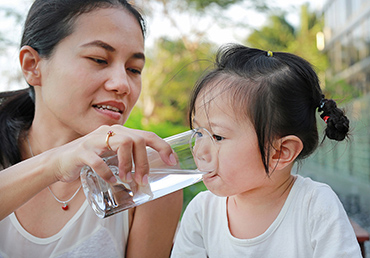Pipetector as a solution to marine pollution President Kumano speaks in a press conference
On June 27, 2019, JSP President Kumano presented one of his inventions, Pipetector, as a solution to problems caused by plastic marine pollution and explained how red rust is formed in tap water pipes, and how can the device reduce plastic wastes in oceans. In recent years, marine plastic pollution has been drawing the world’s attention, including the G20, as a major environmental issue. More than 20 journalists had come to hear the presentation that was published in various media. He also explained that water discoloration could be improved by using the device. The below are some quotes from the speech:
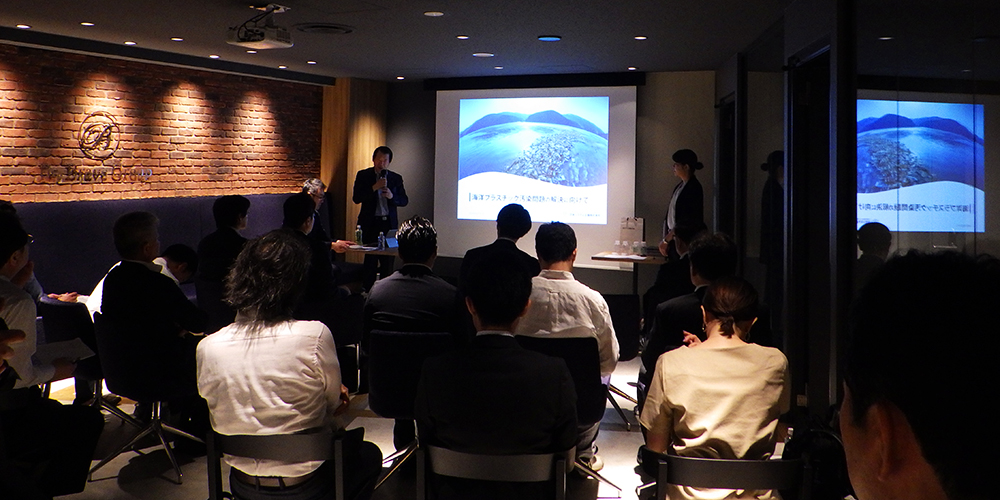
Human produces 275 million tons of plastic wastes annually
Marine pollution has become the world’s major and the most important concern. About 275 million tons of plastic wastes is produced every year by human, and around 8 million tons of which is dumped directly into oceans. Micro-plastics and plastic debris from the wastes also have a critical impact on marine life. To take an early measure to address marine pollution is in urgent need.
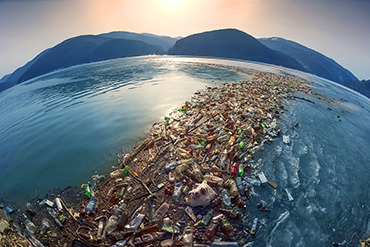
Plastic pollution destroys marine ecosystem
8 million tons of wastes dumped in oceans are mainly plastic bottles. 480 billion plastic bottles are consumed annually, which is equivalent to one million bottles per minute. In developed countries, large proportion of plastic bottles are recycled while in developing countries, most of the wastes are dumped untreated in rivers and oceans. Those that are dumped in rivers will eventually flow into oceans, and very few of them are decomposed by physical forces, such as waves and ultraviolet rays, remaining floating in ocean. Those plastic wastes are causing marine life to suffer.
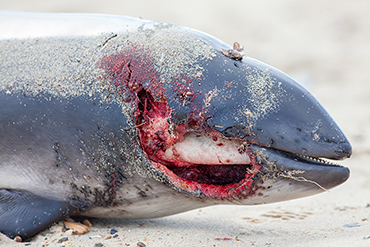
Potentiality of developing countries
In order to reduce the use of plastic bottles in developing countries, it is necessary to improve water quality provided by water authorities. Population of urban areas in 12 developing countries is more than 100 million. Those countries include Indonesia, Bangladesh, Vietnam, Thailand, Philippines, Sri Lanka, Malaysia, India, Pakistan, Myanmar, Mongolia and Nepal.
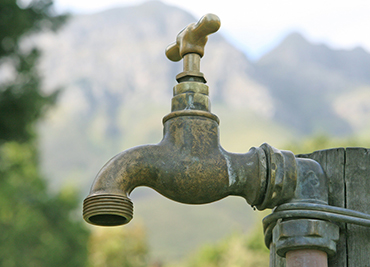
The major reason why water is not drinkable in the developing countries is existence of red rust in water pipes. Chlorine sterilization does not function with red rust in water and hence cannot prevent bacteria from spreading inside. If issues regarding red rust in tap water pipes is addressed at a low cost, the water will be drinkable, and the use of plastic bottles can be largely reduced. For instance, if an Asian city of 100 million population reduces plastic bottle consumption by 2 bottles a day, plastic bottles as many as 70 billion can be saved annually. An empty 500 mL plastic bottle weighs 25 g, so total weight reduction will go up to 2 million tons. Pipe replacement is not a reasonable option due to limitation in budget of developing countries. If red rust in pipes is cleared with 1/10 or 1/20 of pipe replacement cost and tap water becomes drinkable, plastic bottle consumption can be drastically reduced in those countries; we can improve marine pollution.
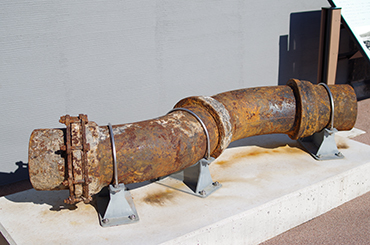
Improving tap water by converting red rust to black rust
The only technology in the world that can prevent red rust in pipes at a low cost without cutting pipes is the Pipetector. This device has been tested by a Japanese water authority to confirm the pipe restoring, bacteria sterilizing effects that work by maintaining level of chlorine concentration.
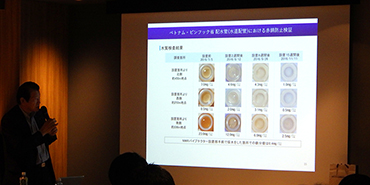
In Vinh Phuc Province in Vietnam, water was not drinkable due to red rust in the water pipes. However, after installation of the Pipetector, water quality was improved to a drinkable level. The effect of preventing red rust has also been tested at a waterworks facility in Wakayama Prefecture, Japan. We are prepared at any time to share the technology of the Pipetector to countries and regions where it is needed to reduce the use of plastic bottles and solve the marine pollution caused by plastic wastes.
